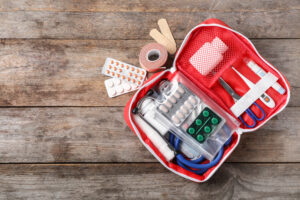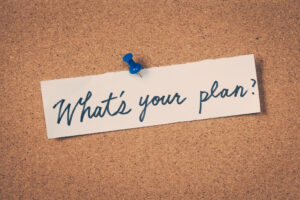By Codi Darnell
November 30, 2021
When I was a little girl, I feared all natural disasters.  From earthquakes and floods to tsunamis and tornadoes, I spent many nights awake in the dark, worrying about it all. And I didn’t discriminate. It didn’t matter that I lived in the pacific northwest and things like hurricanes, tornadoes and volcanic eruptions weren’t of huge concern, I still managed to let my imagination run wild with all types of catastrophic scenarios.
From earthquakes and floods to tsunamis and tornadoes, I spent many nights awake in the dark, worrying about it all. And I didn’t discriminate. It didn’t matter that I lived in the pacific northwest and things like hurricanes, tornadoes and volcanic eruptions weren’t of huge concern, I still managed to let my imagination run wild with all types of catastrophic scenarios.
I would like to say I grew out of my anxieties but it’s more like I learned to live with them through a balancing act of counselling, medication and avoidance. When I became disabled, the fears spiked again when thinking about the logistics of disability in the aftermath of a natural disaster. With such fears, one might think I’m well prepared to deal with these types of unexpected emergencies, but, like most people, I am immensely unprepared – as I mentioned, avoidance is part of my technique.
Motivation
Creating an emergency plan and having basic provisions in place has been something on my to-do list for a long time but, it was never something I prioritized. I mean, who wants to spend money on first aid kits that you will, hopefully, never use (Spoiler alert: I ordered three from Amazon while writing this article). Unfortunately, it often takes a situation that hits close to home to motivate action and, indeed, that’s what has happened.
Although British Columbia is well accustomed to the rain, we recently got too much, too quickly. Water levels rose, mountainsides fell and roads disappeared. People lost their homes, their livelihoods and many were stuck in their vehicles on the side of the highway for hours or days. The situation forced me to ask myself “What would we do if that were us?”
My honest answer to that question was, if it were to happen today, we could be in a lot of trouble. This bumped my emergency plan from the bottom to the top of my to-do list.
What does emergency preparedness look like?

Being prepared for an emergency is not about greedily emptying grocery store shelves. It’s about understanding the absolute necessities you require to survive a situation where you are cut off from the world. It’s knowing what things are essential for you and your family’s health, safety and survival.
For people with disabilities or chronic health conditions, the list of necessities may be much longer. And, as with all things related to disability, there is no one-size-fits-all solution. Everyone has different essential needs and it’s important to know what yours are so that you can be adequately prepared.
The standard recommendation is to have a minimum of three days worth of provisions. But when I began to investigate what I needed, I was quickly overwhelmed. It was with the help of this article from Spinal Cord Injury BC, that I started to wrap my mind around what preparedness would look like for me.
How I’m Doing It
I know I won’t be able to help take care of anyone in an emergency if I haven’t taken the steps to best manage my own condition. While the internet is full of lists that detail what to include in your own emergency kit (which I highly recommend creating), very few point to what you should include if you have a disability or chronic illness. So that’s where I’m starting.
For my own peace of mind, I decided to stock three separate bags of the emergency essentials that are absolutely required for my health. I will keep one inside the house and leave the other two tucked away in each of our vehicles. As I said, everyone’s essentials are different, but I’ve listed some ideas below.

Emergency Essential Bag – Disability Version
-
-
-
-
- Medications
-
- Bathroom supplies (Catheters, wipes, gloves, sanitizer, incontinence pads)
- Mobility aid requirements (tools, spare tire, generator or battery packs)
- A note that details your condition, any allergies and any other pertinent medical information.
- A change of clothes
-
-
The aftermath of a disaster is messy, emotional and potentially dangerous. Being prepared with the necessary supplies and equipment means you will have one less element of anxiety in an already highly stressful situation. If, like me, you find the process of emergency planning overwhelming, start small. Remember you can’t help anyone if you haven’t prepared to help yourself as well.
